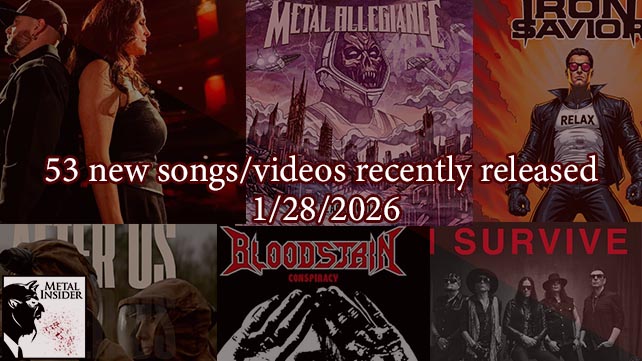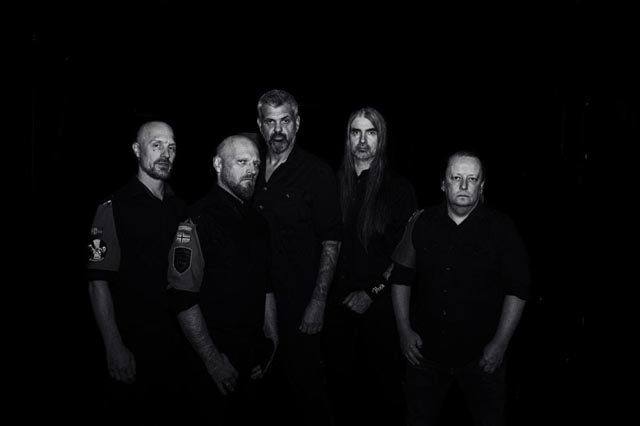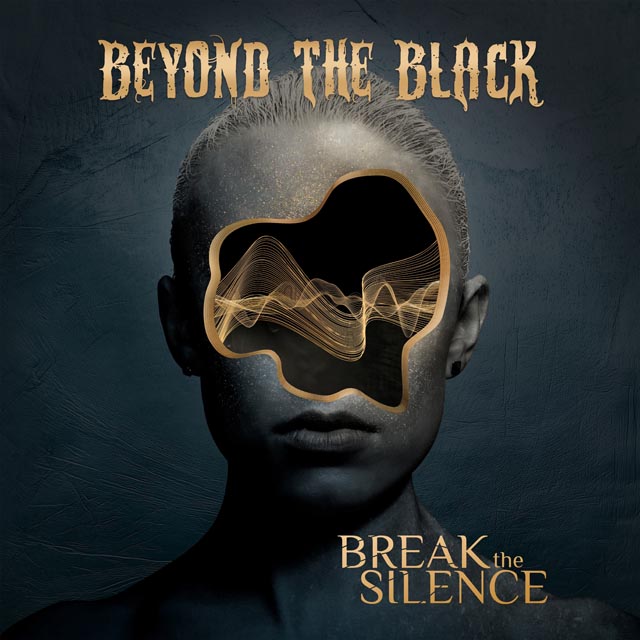
Metal Insider’s Zenae Zukowski and Jeff Podoshen were on hand to fully cover Decibel Magazine’s 2019 Metal and Beer Festival this past April 13-14.
Contributor Jeff Podoshen, who studies HR Giger in his life as an academic, was able to meet up with Tom G Warrior right before his performance with Triptykon at the festival. In this interview Tom G talks about his work with Giger, reveals details about the cover for the new, upcoming Triptykon record and talks a bit about the Hellhammer shows with Triumph of Death.
Alright, so can you tell us about what you’re doing here at Decibel? What your performance is going to center on?
If I only knew about it. If I only knew what we’re doing here, I could ask the same question.
We feel very fortunate that we have a fantastic relationship with Decibel. It’s quite an honor. They’ve been one of the publications that have believed in Triptykon from the very beginning. We owe them a lot. And when they asked us to play at Decibel Metal and Beer Fest, of course, we said, “Yes.” It’s a privilege. It’s not something you take for granted if you’re a Swiss or German band. So coming over here twice to play, to headline both of their festivals is a huge honor, I can say. The support has meant a lot to us, and I’m not just saying that. That’s really, they’ve been long-time supporters and we really appreciate that.
Could you tell us a little bit about how you first met up with HR Giger, and how you got interested in his work and the interplay between his art and your art?
Well, I would never compare what we do to him. And to me, the word “art” is a very big word, and I have a lot of respect for it. And I really don’t know if what we are doing is “art.” What Giger was doing was absolutely art. And at first, I was in contact with him in late 1983 or early 1984 when I was in Hellhammer, and we wrote to him about a potential collaboration, and we were, of course, complete nobodies. We didn’t have a record deal yet. Nobody in Switzerland believed in us, and so we had nothing to lose, so we just wrote to him. We found his address in the phone book, and we wrote to him. We didn’t really expect anything, then he actually called us back and we started corresponding and calling each other. And he donated two paintings of his that we really loved.
He donated them for our first album if we were to get a record deal. That was really when it started in the course of 1984. That’s when all this correspondence happened. But I became interested in his art much earlier. My parents were divorced and I occasionally visited my father. And at his home, there was a Giger print called Friedrich Kuhn’s Life, which was hugely fascinating because it was a highly surreal painting made on a photo of reality, so it was a combination of reality and surreality. And as a child, and then later as a young teenager, it always fascinated me, that print.
My father had two of Giger’s first books. The first two books Giger published, which at that time were completely underground, badly printed, because Giger was also in the underground at the time in the mid-1970s. But these books, they haunted me. It was something between scary and beautiful, what I saw in there, and I had never seen any art like this. So every time I was with my father, I looked at these books. That’s really how I first got in touch with Giger. And the first time I saw Giger together with music was when I purchased the Emerson, Lake & Palmer album, Brain Salad Surgery, in sometime in the mid-1970s, with its phenomenal Giger cover. I had this album displayed in my room, in my childhood room because it was so amazing. But, of course, at that time, I never thought I would ever be a musician, much less work with him.

So you kind of go from having the ELP record in your room, and then towards the end of Giger’s life you’re basically working in his home. How did that…would you call that an “apprenticeship” come about?
No, no, no. It was just a way to repay Giger, basically. We had become friends. Though we had started collaborating again and be in touch again in the mid-2000s. After many years in which we only had very sporadic contact to him, we gave him re-issues and stuff like that, but we didn’t really have a continuous contact. But then in the mid-2000s, he started collaborating with Adonis Guitars. And him and his American agent asked me and Martin Ain of Celtic Frost to come to the house and to look at the prototypes of the Adonis Guitars. That really triggered a renewed collaboration. And two years later, his American agent, Liz Barany, told me that Giger was looking for an assistant. And he told us this on Celtic Frost tour bus, it was me and Martin and the agent of Giger. We asked Liz what does an assistant of Giger has to do, and he told us all the things that were part of that duty and I thought to myself, “This totally sounds like something I would like to do.” Then Martin said, “This sounds like Tom at the very same time.” Then Giger’s agent went to Giger and said to him, “I know somebody.” And so, in addition to being his collaborator and his friend, I became also his assistant, which made the friendship much, much deeper, of course, over the years.
That’s great. Certainly, growing up in America, going to the Giger Museum in Gruyeres is kind of amazing.
Did you go?
Oh, yeah, been there. So, I have family that are also back there in Switzerland. My cousins are there.
That’s a phenomenal place, isn’t it?
It’s breathtaking.
Absolutely. It’s just something out of the museum, it has a different vibe. In spite of the nature of the art displayed there, I feel it has a certain warmth in it. We feel welcomed in this museum. It has this very unique aura. It’s not that aura place or something like that. It’s a good place.
Yeah, it’s accessible but it’s kind of gives you that eye into his vision. What do you think the legacy of Giger and the legacy of Giger’s work in heavy metal… how is that going to be perceived 20-30 years from now?
Giger’s work in heavy metal is only a tiny, tiny little fraction of his entire legacy. His entire legacy, I don’t have to explain that. Giger’s art by now has changed culture, modern culture all over the world. Look at surreal art, look at science fiction, look at horror. Everything’s influenced by him. Giger’s one of those artists who has completely changed the perception of art on the entire planet, and heavy metal is just a tiny fraction of a much, much bigger universe. As for heavy metal, I feel extremely honored that we were a part of that fraction. Triptykon by now… When the next proper Triptykon album will be released, not Requiem, but the next proper studio album, it will carry the last Giger cover, for which Giger was still personally involved and proofed every single design. I’m very proud that this little band, Triptykon, is the only band, the only artist on the planet, that worked with Giger three times in a row. In 1984 I would never thought that this honor would ever be bestowed upon us, because at that time it was Blondie and ELP… people like that. Now Triptykon has become the artist that Giger has worked most with. That was by his wish, which we feel actually honored.
Could you tell me about the new music you’re working on?
The new album?
Yeah.
What can I say? It’s a cliche, it’s gonna be dark and melodic.
[laughter]
That applies to pretty much everything we do. Triptykon has its sounds, you know. You’re not gonna see anything drastically different. We try to develop our sound, but Triptykon is Triptykon. You will recognize it from the first to the last minute. There will be some surprises, but Triptykon is Triptykon.

Can you tell me about the Las Vegas gig coming up? You’re going to be doing some Hellhammer songs?
All of the Hellhammer songs, yeah. This is all about Hellhammer.
What kind of gave you the impetus to bring some of those songs out to Las Vegas?
The reason to do this was because none of these songs are… Only a handful of these songs have ever been performed on stage. Over the last 11 years we did four Hellhammer songs, very rarely, but the entire other remaining body of work of Hellhammer’s never been performed on stage. Some of these songs have become very important for me, for my life’s story and internal… For Celtic Frost’s existence and Triptykon’s existence. For many years, I just have felt that it’s a shame that they have never been performed on stage, so eventually… A very close friend of mine gave me a kick in the ass to finally do something about that. That person (Mia Wallace) is now the bassist of Triumph of Death. I told her about the idea of bringing it on stage and her energy actually made it possible. She took a lot of weight off my shoulders, because at that time I was involved in working on directly with Triptykon, but she did a lot of the work behind the scenes.
So now Triumph of Death is a reality and it’s actually huge fun to play with these people and play this kind of music. And Las Vegas, of course, it was a huge honor to get an offer from America. It’s a huge headache on that administrational level because you have to get visa, which is a very tiring and expensive process unfortunately, but other than that, if you consider that Hellhammer was ridiculed at the time, complete underground band nobody liked and nobody would have come to listen to. Now we get offers from America, it’s of course, highly symbolic for me. A very special thing to take this to America and shove my middle finger in the faces of all of those, who 35 years ago, said it’s not going to go anywhere. Now we’re bringing the exact same music to America. What can I say?
Do you see Triptykon touring through the US at all in the future?
I would like to do this, but it’s, of course, the visa issues and all the… The bureaucracy attached to it, that makes it very, very difficult at the moment for European bands to go to the States. This is something that we can maybe talk about in a year again, but or when the new album is being released, but it’s like… Can’t make any promises.
It’s a complex proposition for many reasons. Also artist tax that is monstrously and unrealistically high. It just carries a huge tail of complications, but of course, we’re always open. One of the first tours Triptykon did was in America, and we basically enjoyed it a lot. Then Celtic Frost was here numerous times. Maybe you need to talk to your government.
It’s become much more difficult over the decades. When we first came in, ’86, of course it was an ancient history, but we walked into the American Consulate in Zurich, Switzerland and they actually said, “Wow, you’re here.” They were happy, they recognized us. Now it’s endless process of paperwork and interviews and payments and immigration attorneys on both sides of the Atlantic and this and that.
It’s just, it’s so tiring. And we’re not you know… We’re not from a “bad hombre country.” To use the language of your government.
Switzerland has been an ally of America for a long time, so I don’t really recognize why it has to be so complicated. For a country like Switzerland, that has always had fantastic relations with America. But it is as it is, and we are here, we’ve done the whole thing for the two festivals. And we’re in the process right now for Triumph of Death and there’s even additional concerts that are being talked about for Triumph of Death later this year.
Well, we love it. We appreciate it.
Well, once we’re here, we love it too. We’re here now, we see this is a beautiful venue. Everybody’s working very hard to make this happen. It’s a privilege. But behind the scenes, the administration takes all the fun out of it.
I really appreciate it.
Any time. It’s an honor, especially being that you actually have an intellect. I appreciate that seriously. You can imagine, not every interview is on a certain intellectual level. Sometimes it’s quite the opposite. So, I appreciate this.
Well, thanks. Giger Museum, when I was a kid I was into Giger, Alien, and music. And you know I was as an academic, I’ve been able to go and study a big museum and go to Switzerland. And spent a long time there just to understand what was behind him. And it’s like getting everything that I can about that art is been… Kind of a labor of love.
Absolutely.

I have as much Giger in my office as I can, which freaks out my co-workers, but I like that. I like that aspect. They’re like, “What is it?” I have like Li II and I have a lot of the famous posters.
That’s beautiful. So respected.
Well, yeah, but I tell them… And I kind of tell them the story behind Li, and mental illness, and…
Of course.
All the machinations. And then their like, “Oh, okay, that’s what it’s about.” And then, they look at it on face value, and they don’t understand the beauty and the depth behind that work.
Yeah, I find that story also intriguing… that she (Li) has killed herself, because mental illness. But her face is known all over the world.
He’s made her immortal.





































































